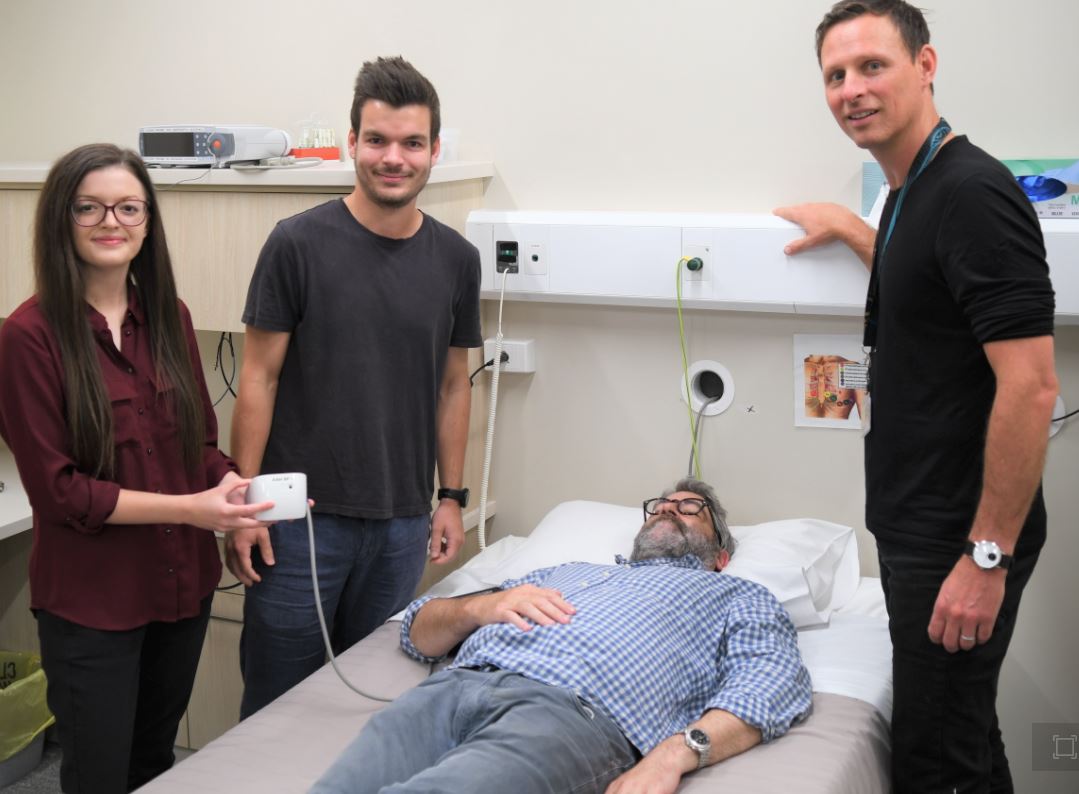
Poorly managed sleep apnoea can lead to uncontrolled blood pressure – a little known underlying risk for millions of people’s cardiovascular health, a new study in a Nature journal reveals.
Most at risk are those with wide-ranging variability in their night-to-night Obstructive Sleep Apnoea (OSA) severity which can be overlooked or misdiagnosed during standard clinical testing, the Flinders University-led research warns.
“Regardless of their overall OSA average severity, people with increased night-to-night variability in the amount of sleep apnoea are at a 50% to 70% increased likelihood of having uncontrolled hypertension and variable blood pressure – a confirmed risk factor for cardiovascular events, all-cause mortality, vascular organ damage, atrial fibrillation and dementia,” says Dr Bastien Lechat, lead author in the new article in the international journal, Nature Digital Medicine.
“High variability in OSA severity is an independent clinical predictor of uncontrolled hypertension and has significant implications for identifying patients most at risk of cardiovascular harm.”
OSA is a common clinical sleep disorder characterised by repetitive upper airway collapse during sleep and is estimated to affect approximately one billion people globally.

The Flinders Health and Medical Research Institute (FHMRI) Sleep Health research is one of the first large-scale extended studies of OSA severity, made possible by using a novel under-mattress sleep sensor technology that allows for multi-night, in-home, non-invasive monitoring of sleep data from 12,287 adults over approximately 180 nights with about 30 repeat blood pressure tests.
The sensor technology measured both OSA severity and night-to-night variation in OSA severity, leading researchers to make comparisons with current single night sleep assessments and possible misdirected management and care.
“These findings reinforce recent evidence indicating there is considerable night-to-night variation in OSA severity for many people, which raises concerns clinically regarding OSA misdiagnosis, says senior Flinders University sleep researcher and FHMRI Sleep Health director, Professor Danny Eckert.
“Furthermore, our study suggests that high night-to-night variability in OSA severity may also be an important contributor to cardiovascular disease – one of the world’s leading causes of death.
“Therefore, there is considerable potential to incorporate new simplified monitoring approaches to aid current single-night diagnostics, which are labour intensive and costly.”
The article, High night-to-night variability in sleep apnea severity is associated with uncontrolled hypertension (2023), by Bastien Lechat, Kelly A Loffler, Amy C Reynolds, Ganesh Naik, Andrew Vakulin, Garry Jennings (Baker Heart and Diabetes Research Institute, Melbourne), Pierre Escourrou (Centre Interdisciplinaire du Sommeil, Paris), R Doug McEvoy, Robert J Adams, Peter G Catcheside and Danny J Eckert has been published in Nature npj Digital Medicine DOI: 10.1038/s41746-023-00801-2.
Acknowledgements: Prof Danny J Eckert is funded by a National Health and Medical Research Council of Australia fellowship and the study was instigated by the Adelaide Sleep Health Institute (now FHMRI Sleep Health). Co-author Dr Pierre Escourrou is a consultant for Withings, the manufacturer of the French-based manufacturer of the under-mattress sleep technology used to monitor sleep in people’s homes in this study.

